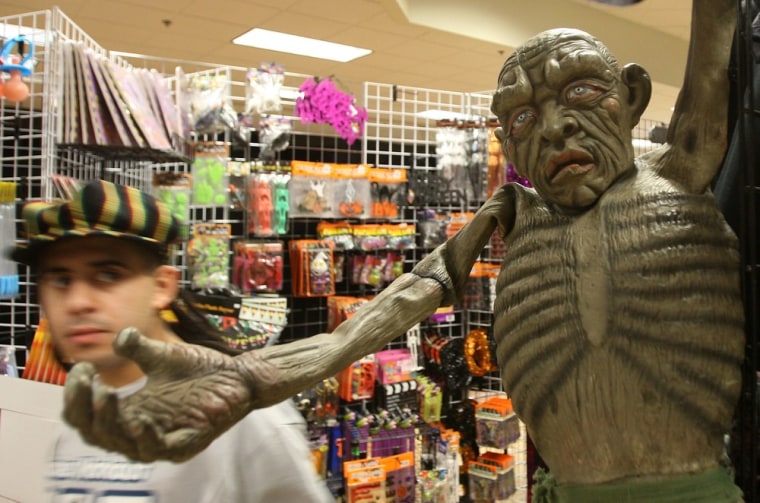Whether it's ghosts or goblins or candy and costumes, Americans are ready to spend far more on Halloween this year than last, an estimated $5.8 billion, and they aren't leaving their pets out of the fun.
A survey by National Retail Federation showed the single largest expense will be on costumes for children, adults and pets.
"This year, people are expected to embrace Halloween with even more enthusiasm," Matt Shay, the federation's chief executive, said in a statement, noting that the holiday has given Americans a welcome mental break from the stress of the economic doldrums.
Two out of five Americans plan to wear a costume this year, up from one-third last year, and about 11.5 percent of consumers will dress up their pets.
Americans will spend an average of $66.28 on Halloween, including $23.37 a costume, $20.29 on candy and $18.66 on decorations.
The total represents a 17.7 percent increase from last year and will be roughly on par with 2008 levels, according to the poll of 9,291 people.
"The early indication is that people are going to spend again," said Tony Detzi, vice president of operations of Spirit Halloween, which operates about 850 seasonal pop-up stores in North America.
"Costumes do allow you to have escapism — for one night you are able to be whoever you want to be," Detzi said.
Although spending on Halloween is small compared to the Christmas holidays and back-to-school, it will give a boost to U.S. retailers, who are still struggling with sluggish consumer spending.
The survey showed that many people are still spooked by the state of the economy. About 30 percent said economic concerns are affecting their spending plans, with cuts most likely in candy but not costumes.
"Americans are excited about Halloween but are still being frugal," said BIGresearch executive vice president Phil Rist.
But even if Halloween spending recovers to 2008 levels it would still only be on par with when the economy and consumer spending went into a tailspin following the financial crisis.
